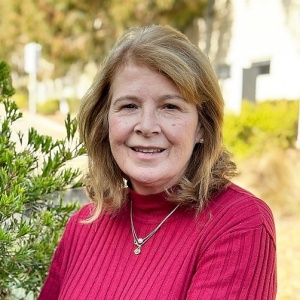Royal Society of NSW News & Events
Western NSW Branch Meeting: 2024-4
 “Adapting to change — invasive plants and pests take up the challenge”
“Adapting to change — invasive plants and pests take up the challenge”
Professor Leslie Weston FAA
Research Professor of Plant Biology
Gulbali Research Institute
Charles Sturt University
Date: Wednesday, 28 August 2024, 5.30 pm for a 6.00 pm start (AEST)
Venue: CSU Riverina Playhouse, 8 Cross Street, Wagga Wagga, NSW, and live-streaming
Registration: through Humanitix is required for both the face-to-face event and live-streaming
Entry: No charge
All are welcome
This meeting is a joint presentation of Charles Sturt University and the Western NSW Branch of the Royal Society of NSW
Summary: Invasive plants and pests can adapt to new environments, some rapidly and others over considerable periods of time, resulting in behavioural changes over time. In the last 500 years, we have seen a rapidly increasing spread in the number of plants and other non-native organisms introduced around the world. These newcomers adapt to their environment through evolution by natural selection, such that changes occur in these non-native populations in contrast to those remaining behind. At a time when we are experiencing rapid environmental changes and selection pressures, understanding how organisms adapt to these changes is critical and is particularly important for land and property managers. Farming practices, including the adoption of conservation tillage systems, have led to the emergence of new and sometimes problematic weed and pest species. In addition, climate change across southern Australia has resulted in warmer temperatures and increasing frequency of droughts along with heavy precipitation events, which also impact the prevalence and range of invasive pests. Increasing summer precipitation, events have also seen the emergence of weeds, pathogens and other pests, making management of rights of way, croplands and forested regions more problematic. Our research has addressed the emergence, identification and invasion history of some of these weedy pests and studied the mechanisms used to enhance their invasion success. Successful weed invasion can have far-reaching impacts on human health, food security and management of important ecosystems, so prediction of risk and development of alternative management strategies for key weed species is also of increasing importance. This lecture will highlight some key examples from this region and highlight the need for improved knowledge of crop and weed ecology and physiology.
Leslie Weston's research focuses on chemical ecology and physiology with an emphasis on the generation of a deeper understanding of the plant and its rhizosphere and associated microbiome and how plant interactions with weeds, herbivores, and pests are mediated by evolutionary adaptation and production of defence metabolites or secondary products.
Research interests have included the development of a fundamental understanding of the localisation, biosynthesis, and regulation of secondary plant products including those in root exudates as sources of novel chemistry. Recently, ‘omics’ approaches have been applied to investigate plants and their complex interactions with other plants, grazing livestock, pests and soil microorganisms.
Applied research has focused on projects studying the invasion history and risks associated with invasive weeds in Australia and the development of alternative management strategies for weeds and pests, including the use of biocontrol agents and alternative management practices. Prof Weston and her team have recently investigated soil health and microbial diversity in the rhizosphere and the role of bioactive molecules in plant defence while exploring the chemistry of plants, algae and soil microbes using metabolomics.
In 2008 Leslie received the BioFirst Fellowship in Life Sciences which brought her to Australia from Cornell University. In May 2023, Leslie was elected as a Fellow of the Australian Academy of Science and in May 2024 was nominated for the 2025 David Craig Medal in chemistry research offered by the AAS.

